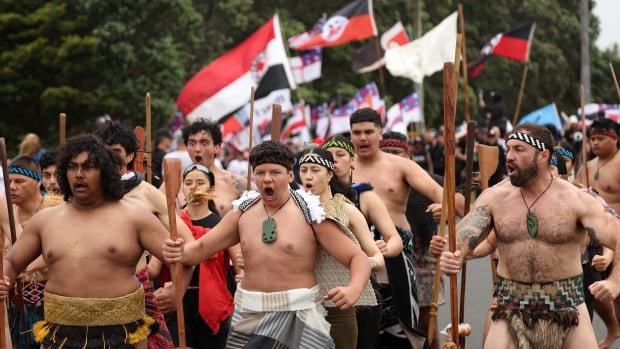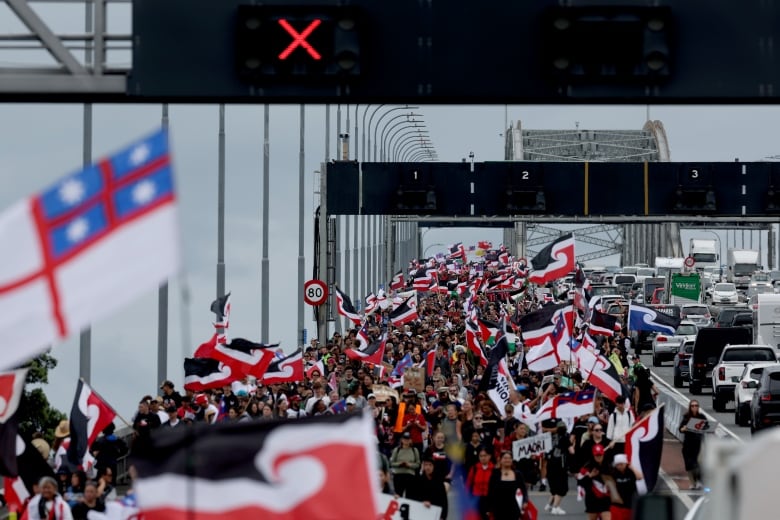
New Zealand’s Parliament was briefly suspended on Thursday after Maori members staged a haka to disrupt the vote on a contentious bill that would reinterpret a 184-year-old treaty between the British and Indigenous Maori.
First signed in 1840 between the British Crown and more than 500 Maori chiefs, the Treaty of Waitangi lays down how the two parties agreed to govern. The interpretation of clauses in the document still guides legislation and policy today.
Rulings by the courts and a separate Maori tribunal have progressively expanded Maori rights and privileges over the decades. However, some argue this has discriminated against non-Indigenous citizens.
The ACT New Zealand party, a junior partner in the ruling centre-right coalition government, unveiled a bill last week to enshrine a narrower interpretation of the Waitangi treaty in law.

As parliamentarians gathered for a preliminary vote on the bill on Thursday, MPs from the Te Pati Maori Party stood and began a haka, a traditional Maori dance made famous by New Zealand’s rugby team.
Parliament was briefly suspended as people in the gallery joined in, and shouting drowned out others in the chamber.
Marching across the country
ACT New Zealand leader David Seymour said people who oppose the bill want to “stir up” fear and division.
“My mission is to empower every person,” he added.
The controversial legislation, however, is seen by many Maori and their supporters as undermining the rights of the country’s Indigenous people, who make up around 20 per cent of the population of 5.3 million.

Hundreds have set out on a nine-day march, or hikoi, from New Zealand’s north to the national capital of Wellington in protest over the legislation, staging rallies in towns and cities as they move south.
They will arrive in Wellington next Tuesday where tens of thousands are expected to gather for a big rally.
While the bill has passed its first reading, it is unlikely to garner enough support to pass into law.
Coalition partners the National Party and New Zealand First are only supporting the legislation through the first of three readings as part of the coalition agreement. Both parties have said they will not support it becoming legislation, meaning it will almost certainly fail.
Prime Minister Christopher Luxon, from the National Party, is fulfilling a political deal that helped hand him power in late 2023. Without enough seats to govern on their own after the election, Luxon curried support from New Zealand First and ACT, which won less than nine per cent of the vote, in return for other political concessions.

